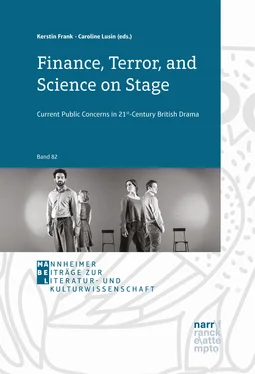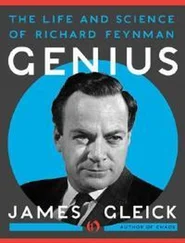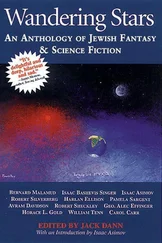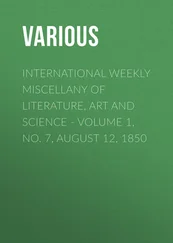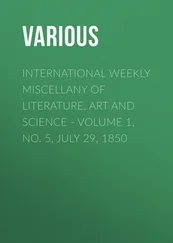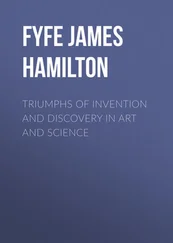The modern mobile phone jars with the Roman uniform.
It seemingly cannot be used as long as the sword is in the way.
The fact that it is switched on demonstrates a lack of acting professionalism.
Yayah answers it: another lapse of professional standards.
Taken together with the dislocating metatheatrical beginning of the performance, this is more than enough to take the audience by surprise. The counterweight to that is the sequence of associations Yayah’s speech gives rise to:
No greeting formula from him: this seems to happen all the time.
He addresses his wife (?) generically as “woman”.
Beating ‘the girl’ – daughter, servant? – is an everyday task.
It is usually performed by the male.
Unusual circumstances encourage female agency.
The girl, however, gets beaten either way.
Yayah does not enter a discussion. He commands.
He lies about the rehearsal, representing it as a more business-like ‘meeting’.
He does not care if all this is heard (and does not care or does not suspect that inferences are made) by the others.
This list seems to indicate that visual signs are generally employed in the service of discrepancy: the asylum seekers are visibly out of place, and the performance breaks down when reality intrudes. You cannot wield a cell phone and a sword at the same time. Verbal signs, on the other hand, are used to recall a stereotype: Yayah comes across as impolite, arrogant, as#sertively male, violent and mendacious, assembling all the clichés associated with contemporary Lagos, Nigerian email scams and much older, but stable racial prejudices.
These are the very first moments of the play. They set the tone for much of what is to come, until towards the end of the fourth act the time of the frame play and that of the asylum seekers’ performance converge and the farce disappears – unless we are to see their random deportation as the truly farcical event of the evening. This reading may be too charitable – one observation in support of it might be that the simultaneous presence of characters clad in quasi-mediaeval costume and British enforcement officers at the beginning of the play recalls the ending of Monty Python and the Holy Grail (1975), the seminal film farce, whereas the last scene is un-anachronistic, with its action coldly pragmatic and (almost) free of jokes.
A consummate comedian like Richard Bean does not rely on one comic technique only. Before the many-layered configurations discussed just now lie straightforward comic routines like this one, set – in spite of the contemporary language – in 17 th-century Spitalfields:
IDA. Fucking frogs! My grandfather didn’t die in the English Civil War so’s half of France could come over here and live off the soup!
LAURIE. Your grandfather didn’t die in the English Civil War. He was in here yesterday.
IDA. That’s what I said. I said ‘my grandfather didn’t die in the English Civil War so’s half of France could come here and live off the soup. (17, emphasis in original)
The appeal of such an exchange – beyond its absurd reasoning – lies in its use of the fast-talking and even-faster-thinking Cockney stereotype that together with the alliterative kenning “fucking frogs” recalls two distinct strands of British popular comic entertainment, the music hall and television sitcoms. ‘Allo ‘Allo! has already been mentioned; Blackadder (1983–89) is another pretext that springs to mind. These formats generate much of their comic force by distributing targets evenly: foreigners are invariably held up to ridicule, the more so if they are (or attempt to be) immigrants, struggling to adapt, but they are not contrasted by virtuous, ideal Englishmen.
Bean’s modus operandi, particularly in this play, is that of excess. He doubles the layers of theatrical reality, quadruples the plot and multiplies both the techniques and targets of humour. The one constant is the subject of immigration, and much of the play’s coherence, such as it is, is due to the single-minded pursuit of it: displacement, voluntary emigration, flight, economic migration, assimilation, integration – hardly any dialogue lacks a reference to them:
TAHER. Why did you have to leave Azerbaydzhan?
ELMAR. My films, scripted by Aram Magomedli, ridiculed the government’s violent suppression of free speech. I felt safe, because there was never anyone in government intelligent enough to understand the metaphor. But last year, my script writer, my friend, Aram Magomedli –
TAHER. – they killed him?
ELMAR. No. He became Minister of Culture. (70)
Beyond such passages of traditional (political) comedy and the full employment of the mechanisms of farce Bean uses a technique that serves both as a source of comedy and a practical example of assimilation and semi-successful integration by plotting social change onto linguistic developments. Here is a speech by de Gascoigne, the most prominent of the Huguenots, made shortly after their arrival:
Like you, I am here in Brick Lane, in England this foul smelling swamp, only because I want to worship my God free from the constraints of Papal instruction, and the threat of death. Like lovers in exile, we must maintain French culture. The English are drunks, incapable of intellectual discourse, they make a god of common sense, they hate their children, and would always rather be ‘unting. We French, are superior in all things, watchmaking, textiles, armoury, and, of course, love.
There is uncontrolled sighing in the congregation .
Londoners fear our style, our sophistication, our romancing, They will not allow us through the gates into the city. So outside the walls, right here, let’s build French homes, in streets with French names, and through extraordinary and relentless love making, let us populate these streets with French children, and create a new Nîmes, a new Perpignan, a new Paris. (21)
We are to assume that this peroration is given in French, since a few pages (and a few years) later he addresses his hearers again in the following fashion:
Watcha! Turned out nice again! Cheer up love, it might never happen! Worse things happen at sea! Yes, I am speaking English! If you have difficulty understanding me I might ask you why. Some of you still have the fleurs de lis tattooed on your hearts. Your children, born here, cockaneeys, still speak French – why? France rejected you like a girl rejects a lover. A new page in history is writ today. England is at war with your sweetheart. I implore you not to give the English permission to question your loyalty! I am no longer Sidney de Gascoigne. From this day forth, I am brutal, short, pragmatic, Bert. Yes, Bert Gaskin, and my son Al-bert Gaskin. And I implore you all to similarly Anglicise your reputations.
Murmurs of disapproval.
I do this because she, France, broke my heart, but England, she offered me her bosoms! (29)
He clearly has become different, not only in the outward signs referred to by himself, i.e. the change of language and of name, but also in his half-hearted acceptance of a future that is British. This half-heartedness is mirrored in the not-quite-English quality of his accent (“cockaneeys”) and his professions of a disappointed love as well as the macaronic lexicon he employs, moving incongruously from London street slang (“watcha!” is a corruption of “what are you doing”) to fleurs-de-lis tattoos. He is not French any more, but not quite English yet: a perfect linguistic representation of the immigrant’s in-between state.
At the same time, the audience is made aware of the contrast between the flowery and sophisticated French heritage of “Bert Gaskin” and the hard and sometimes unpleasant living conditions in the East End. One of the points Bean makes repeatedly and well is that assimilation and integration may not be a tempting prospect even if the immigrants do not cling stubbornly to their previous cultural framework, simply because the receiving culture is unappealing:
Читать дальше
